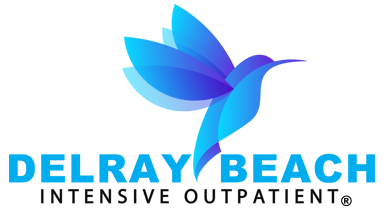Intensive outpatient programs (IOP) bridge the gap between active rehabilitation and independent living. They provide essential support for people in the early stages of recovery, which is often a challenging and confusing time.
Our Delray Beach intensive outpatient program is designed for people who have completed inpatient residential treatment and are looking for additional support. It’s also for those who need to work while in treatment or meet outside obligations, like caring for children or an elderly parent.
How Intensive Outpatient Treatment Works
Unlike a traditional inpatient treatment program, where you live onsite and are monitored around the clock, an IOP offers more personal freedom and flexibility.
With our Delray Beach IOP program, you live off-site or at home and attend therapy sessions and other activities at our facility 4-5 days a week for several hours each day.
Our curriculum includes:
- Individual counseling sessions
- Group therapy sessions
- Chemical dependency education
- Relapse prevention training
- An introduction to the 12-step method of recovery
- Restorative activities, such as yoga and beach outings
- Team-building exercises and community service projects
Substances We Treat in IOP
- Alcohol
- Meth
- Cocaine and crack
- Inhalants
- Roxy
- Flakka
- Morphine
- Oxycodone
- Prescription sedatives
- Prescription drugs
- Club drugs
- Heroin
- Suboxone
- Synthetic weed
- Benzos
- Vicodin
- Marijuana
Our Professional Team
Our specialized team of primary therapists, medical doctors, behavioral health technicians, and case managers are the best in their class. They work together to create comprehensive programs tailored to each client’s needs and preferences.
Some of the therapeutic techniques our licensed therapists use include:
- Cognitive behavioral therapy (CBT): This effective therapeutic treatment method is backed by years of research. CBT helps people identify and change unhealthy behaviors and thought patterns and better manage their emotions. Our therapists use CBT in individual and group therapy sessions.
- Dialectical behavioral therapy (DBT): A type of cognitive behavioral therapy, DBT teaches clients to live in the moment and embrace self-acceptance while also working to change unhealthy patterns. DBT is helpful for people struggling with substance and behavioral addictions.
- EMDR: Eye movement desensitization therapy, or EMDR, is a psychotherapy treatment that can help alleviate distress associated with traumatic memories. The therapist directs the client to perform specific eye movements and may use other stimuli including hand tapping or audio stimulation to help the client form new associations with the traumatic memory.
We also offer mental health care for clients who are struggling with issues like anxiety, depression, or post-traumatic stress disorder.
Our resident psychiatrist meets with clients regularly and is able to prescribe medications for those who need it. Proper medication management is a critical part of successful recovery for people with mental health disorders.
The Perfect Setting for Healing and Recovery
Our well-appointed facilities are in beautiful Delray Beach, a South Florida beach town known for its strong and supportive recovery community.
Our clinical and administrative offices are designed with recovery in mind, down to the last detail. We work hard to create a comfortable atmosphere that promotes clarity of mind and spirit, with an emphasis on transitional healing. Our facilities are the optimal setting for individual therapy sessions and group meetings.
Why Choose Delray Beach Intensive Outpatient?
We know how addiction affects individuals and families because we’ve been there. Our founder was inspired to create a rehab center with a more progressive focus on transitional care because of his own struggles with addiction.
Today, Delray Beach Intensive Outpatient is led by a full team of professionals, some of whom are in recovery themselves and know firsthand the struggle of addiction. We will create a personalized treatment plan just for you.
The addiction-relapse cycle can be exhausting and isolating. But we believe recovery is possible for anyone, regardless of their history. If you’ve been in treatment before and are feeling disappointed or discouraged, we want to help.
Take the first step toward healing and recovery. Call us today to speak with a treatment advisor.
